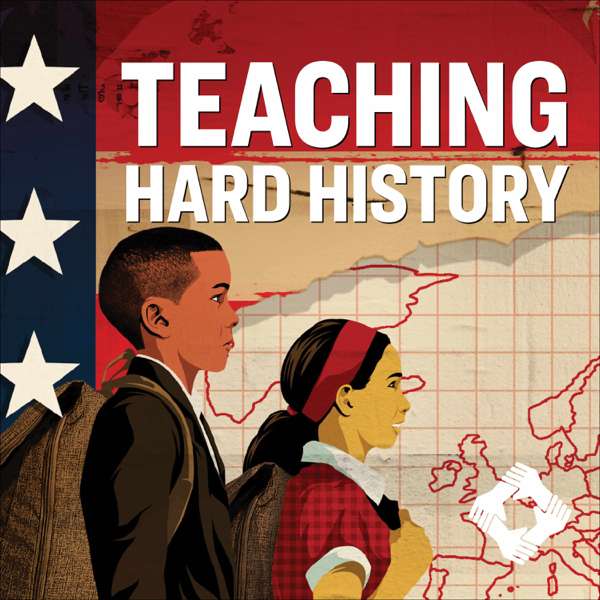This podcast episode is from Smart Social Week: An Online Parent Conference To Get Your Kids Off Their Screens.
Learn the 70+ apps your kids might use: https://smartsocial.com/social-media-webinar/
Learn from 70+ safety experts in our Smart Social Week Conference: https://smartsocial.com/smart-social-week/
Unlock 70+ videos your kids watch to learn how to shine online in Parent University: https://smartsocial.com/parent-university/
Read this episode on our blog
Subscribe to our podcast on: iTunes – Google Play – Stitcher Radio – Spotify – Web Player
Hire Josh Ochs to speak at your organization.
Next Steps for Podcast Listeners:
--> Register for our new free social media safety webinar.
Join Parent University to get videos to watch with your kids so they can better understand WHY they need to be smart online.
Please share this episode with a friend and subscribe so we can help more parents. Thanks for all your support.
Join our next webinar to learn the 30 worst apps your students should never use: https://smartsocial.com/social-media-webinar/
Join Parent University to get videos to watch with your kids so they can better understand WHY they need to be smart online.
View the top 70+ good and bad teen apps in our Popular App Guide page for Parents and Educators.
We asked parents and educators what they were struggling with most when it comes to digital safety and an overwhelming number told us that it’s difficult to set screen time limits with their students. It’s important to help students build healthy screen time habits, but for many parents and educators that’s easier said than done.
So, we asked 5 experts to share their best tips parents can use to limit screen time. In this post, learn how you can create a daily routine for your family, encourage your students to earn screen time, how to model positive behaviors, take a social media break, and more.
1. Build a daily routine for your family
Elizabeth Malson, President of Amslee Institute
Parents have a lot to manage and it’s easy for kids to get several hours of screen time a day. Depending on the age of the child, it may be challenging to switch from screens to other activities, but never underestimate the power of a bored child. Without a screen, children usually find something to do, especially if they have a bin of toys, a set of legos, books, bikes, and other age-appropriate activities. It may take a few weeks for the child to realize they need to find something else to do with their time.
Reducing screen time can help children develop life skills, like how to self-regulate their use of media and have more time to advance academically. To develop personal responsibility, accountability, and the importance of helping family members, introduce children to household management chores and teach them cooking, how to fold laundry, and cleaning. For younger children, have them work on puzzles, build lego sets using an instruction book, read out loud, complete supplemental workbook pages in an education binder, spell words, make up a song, or turn on the music and dance. When dinner, dishes, and other chores are done, go on a neighborhood walk or bike ride each night. During this time, talk about space, the stars, the forest, and stop to look at bugs and collect rocks. Following these steps can help build learning into your daily routine.
2. Challenge your student to take a one-week vacation/detox from social media
Josh Ochs, Founder of SmartSocial
Teach students that social media can (and should) be utilized as a tool for good, but that it is important to take breaks from time to time. Challenge your student to consider deleting their Instagram and/or Snapchat from their phone for one week and take a social media detox/vacation. Before embarking on their “low tech vacation,” students can announce to their friends that they are focusing on school and can be reached by text directly. Then, help your student delete their Snapchat, Instagram, and any other time-consuming apps from their phone for one week.
If your student doesn’t want to delete their apps, consider having them unfollow 100 people on Snapchat and/or Instagram. This will free them up to only follow people they are close with, and can even reduce social media anxiety.
3. Kids should earn time on the internet instead of it just being given to them
Brittany Jean-Louis, LPC, A Freeman’s Place Counseling
Part of earning screen time is through creating a behavior modification system in which kids are required to do something (finish chores, have a good behavior day at school, complete homework, etc.) to earn something (sleeping over a friend’s house, playing video games, getting on the internet, etc.). The behavior modification can be a chart created by parents and kids together. The chart can include at least 3 target behaviors (complete wake up routine, attend school with no behavioral issues, come home and complete a chore, etc.). When those target behaviors are met, the kid can earn screen time. Creating the target behaviors, and even the amount of screen time that can be earned, should be discussed as a family. That way, kids will feel a part of this process, which increases self-esteem and cooperation with something they have collaborated on. Parents should also use strength-based language in discussing limits. For instance, instead of saying “too much screen time is bad” a parent can say something that resembles the following statement:
“We know how important it is for a kid your age to have access to the internet, but we want to ensure that you are well-rounded as a person. Therefore, we want to see you doing homework first and foremost, participating in an extracurricular activities, and then having screen time.”
4. Set hours and schedule social media blackout days to limit screen time
Justin Lavelle, Chief Communications Officer for BeenVerified
Not setting limits on technology usage is a big mistake. Many parents believe if kids are participating in age-appropriate technology, everything is fine. Studies show that some kids may have a propensity to become tech addicts. Kids who partake in too much tech time tend to be anxious, have a hard time making and keeping friends, and can develop low self-esteem. It is essential to set hours and schedule blackout days to keep kids involved in real-life activities and relationships.
To help limit screen time, consider downloading an app that limits their online usage. It will disable their device when their time is up. You can also block websites you don’t want made available to your kids. Parents should own the passwords for each device and change them regularly, even daily if feasible. Only give your kids the password once chores and homework are complete. It’s also important that parents model the behavior they are expecting from their kids. If kids see their parents on their phones or iPads all the time, they will expect to do the same.
Tips To Help Keep Kids Safe Online:
- Be present when teaching your children about social media. Monitor the conversations taking place to make sure they are appropriate. Have a single conversation to start things off and continue talking to them, especially as they get older and their interests change. The best advice you can give your kids is to use good judgement when it comes to social media.
- Use parental controls when setting up apps and games on your phone or computer. Block pop-ups that kids might accidentally click on.
- Consider using a cell phone made just for kids to reduce the risk of adult content exposure.
- Parents should trust their kids to do the right thing, however, kids often forget that there are predators waiting to target innocent kids. When allowing kids to surf the internet or engage on social media, be sure to place the computer in a common area where you can keep tabs on their activity. If kids start to get secretive about conversations or hide what they are doing, this is a red flag and you should do some investigating to keep your kids safe online. Some websites for kids seem harmless, but pay attention to age-appropriate content. Many kids under age 13 lie about their age with their parent’s permission to gain access to teen sites. While there may not be violent content, there will certainly be content not suitable for a child less than 13. Protect your kids by not allowing them to access sites designed for older kids.
- Teens are gravitating to photo and video sharing apps like Snapchat. This app allows users to post photos that disappear in 10 seconds. Set guidelines with your kids on what is and isn’t appropriate to share. Keep in mind, snaps don’t always completely disappear. They can be captured with a screenshot and used by anyone however they want. It could even be used for cyberbullying.
- Read the “Terms of Use” for any apps your kids are using. For instance, Snapchat is granted access to the user’s address book and uploads content to its servers. This allows Snapchat to share private info about your friends and contacts without them granting permission.
- Use Privacy settings to limit who can see photos and videos your teen posts via Snapchat or other social media sites. Many terms of service grant permission for royalty-free license to use, reproduce, and modify user’s content in connection with the services, subject to your use of privacy settings. Also, it’s possible for other users to gain access to your child’s screen name or phone number from other sources and add them to their friends list. You can help block unwanted users or people they don’t know.
- Parents should know about SnapKidz which is an app designed for kids under 13. They can still take photos, draw on them and create funny captions, but they are unable to send them. All of the “snaps” are stored on their own device.
- Teach your kids that technology can be good when used constructively, but it can also ruin lives when used inappropriately. In this day and age, a “do-over” is less likely to happen.
5. Instill healthy screen time habits by modeling positive behaviors
Colleen Sims, Founder of Guidance With Love
Because of the nature of technology today and it’s integral role in a child’s life, it’s no longer sustainable to create arbitrary time limits for screen use. It’s more important to instill healthy habits for screen time. One way to do this is by having a list of activities a child must do before engaging in screen time (complete household chores, complete self-care tasks, do something active, do something creative, go outside, read something, do something social, etc). These are parts of life that need to be protected in the age of technology and they will naturally decrease the amount of time available for children to use screens.
It’s also important to promote (and model) pro-social limits, such as no screens at the dinner table, everyone puts their phones away during family time, etc. Then, we want to create limits around screens to protect the brain, like no screens an hour before bed, no screens for the first hour after waking, a limit to how long screens are used without a break, etc.
Next, we want to monitor the content that is consumed on screens and set limits around that. Finally, it’s important to model healthy screen habits through our own behavior as parents. How often do your children see you using screens? Does it match what you expect from them?
Conclusion
It can be difficult for parents to limit screen time, but if parents follow the advice from these experts, it can get easier.
For younger students, parents and educators can:
- Find alternatives to screen time:
- Puzzles
- Building Lego sets
- Reading out loud
- Spelling words
- Making up a song
- Listening to music
- Going for a walk
- Create a daily routine for your family that has screen time scheduled for limited periods of time.
- Model positive screen time behaviors for your children. If you don’t want your children to use their phones in certain circumstances, then it’s important that you don’t use your phone in those scenarios.
- Have regular discussions with your student about digital safety. Remind them to never share personal information online and that they can always come to you if they experience anything uncomfortable.
- Keep the family computer (and any devices your student has access to) in a central area of your home and use visual timers to track your student’s screen time.
For older students, parents and educators can:
- Set a screen time schedule for your family that includes blackout days and times (e.g. no screens one hour before bed, no devices at the dinner table, etc.).
- Encourage your student to find offline activities they would be proud to share on social media. This can generate excitement if it means your student will have new content to post online.
- Monitor your student’s screen time activity and use the same apps as them. When students know that their parents are reviewing their digital footprint, they tend to keep their activity more positive.
- Have regular discussions with your student about digital safety. Remind them that they can always come to you if they experience anything uncomfortable online.
- Consider taking a social media vacation as a family.
Register today for Smart Social Week: An Online Parent Conference To Get Your Kids Off Their Screens.

 Our TOPPODCAST Picks
Our TOPPODCAST Picks  Stay Connected
Stay Connected












